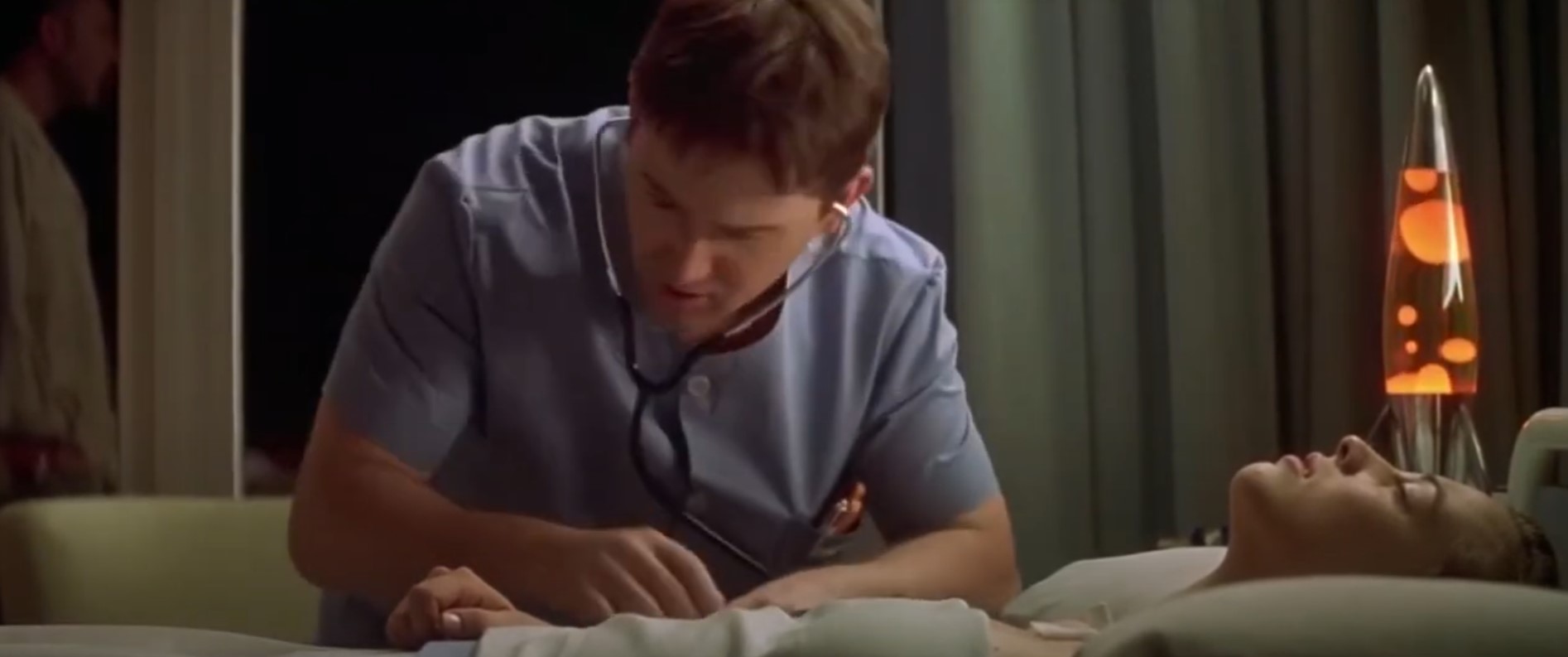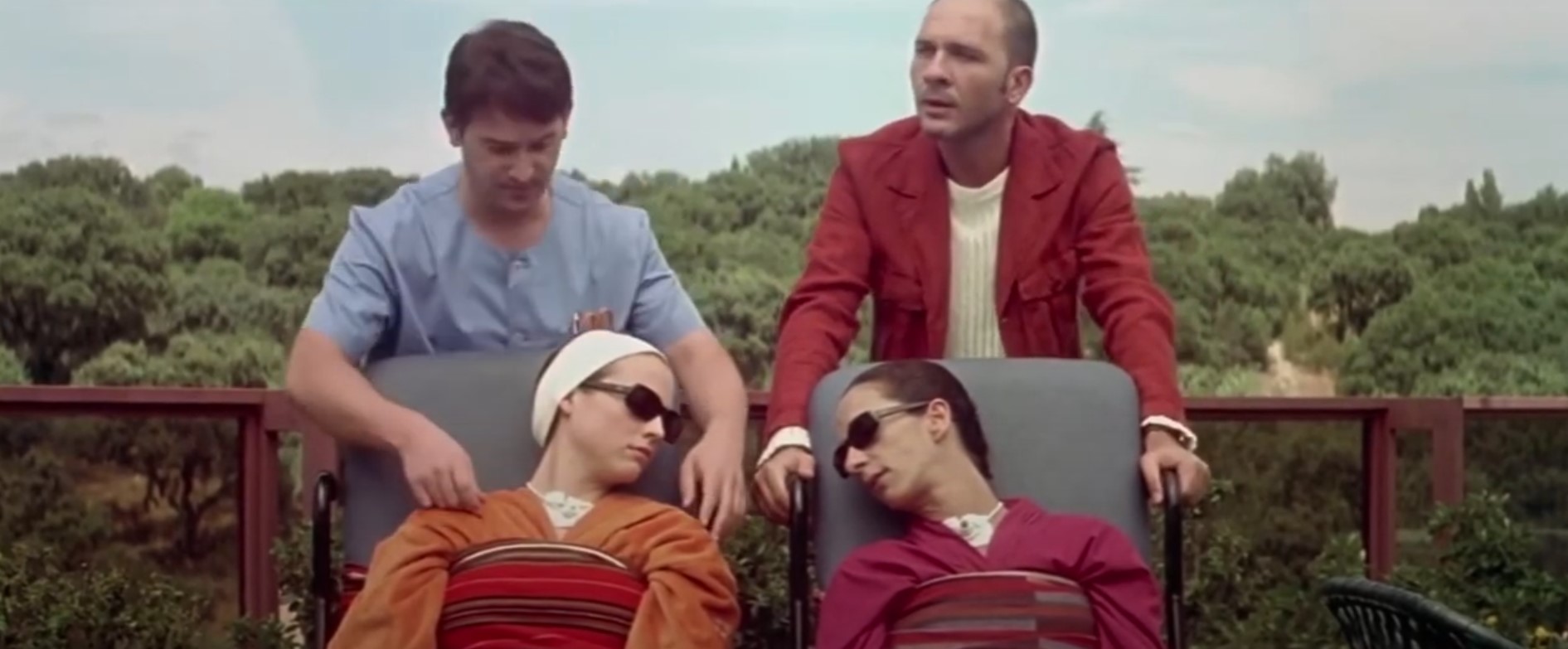In the film Talk To Her, the protagonist, Benigro, realizes that his love is flawed and wonders if the mask he wears in the film can represent his true self. His love reveals the limits of realism and ultimately leads him to his destruction.
It’s been said that cinema is art without a muse. From the technical side of cinema, this is partly true. Although the medium of ‘moving image’ has a continuity that closely resembles our everyday experience of ‘seeing’, cinema is in fact framed. We perceive a discontinuous sequence of many frames as a ‘continuous picture’, which is why I am a strong supporter of the artistic possibilities of film.
Movies are fundamentally staged, meaning that they are directed. In fact, many things we “see” are staged. Where does the reality in a production come from: from a complete reconstruction, or from a sincere production, a lie that wants to deceive?
For a moment, let me share a passage from Slavoj Žižek’s Enjoy Your Signs.
There is no such thing as the ‘real me’ under the mask. The real you is not wearing a mask, the mask is the real you. When you take off the mask, there is actually nothing underneath. What is actually false and nothingness is the “true self” hidden beneath the mask you are wearing. So the path to “true” agency is not so much an “outward” as an “inward” march. At first we imitate someone (a parent, a teacher, etc.) and act as if we are them, but gradually we become them. It’s not hard to see in this paradox the “logic of habit” that Pascal called “act as if you believe”. The performative aspect at work here is established in the symbolic validity of the ‘mask’. By putting on a mask, we really become who we are pretending to be.
The conclusion to be drawn here is the opposite of the conventional wisdom that “human actions (achievements, accomplishments) are just actions (gestures, appearances) when you dig down to the bottom of them.” In other words, the only authenticity that frees us is the authenticity of “pretending to be something” and the authenticity of “accepting actions (attitudes) as true.
I call this the “authenticity of the mask,” for how can we be sure that we are not, in fact, performing our lives? That is why Sartre wrote in his book Vomit, “But man must choose. To live or to tell a story”.
Now let’s talk about realism. In his book Origins of Japanese Modern Literature, Kojin Karatani says, “The reality of modernity is achieved through the discovery of the landscape.” And he adds that it is achieved because of the inner human being. So the realist is always the inner human being, and the inner human being in this movie is, of course, Benigro. We’ll discuss Benigro’s inner humanity and its cinematic effect in more detail later.
I’d like to add a quick note about Benigro’s psychiatric consultation scene in the middle of the film, where the doctor does something interesting: he listens to the patient’s past rather than first categorizing the patient’s illness. But in fact, what Freud did in pioneering the field of psychoanalysis was the exact opposite. When Freud saw neurosis, he thought there must be something wrong with childhood, but when his theories were translated into education and parenting, there was an attempt to protect the child by removing conflicts or contradictions from childhood. Gojin called this “something Freud never thought of,” and the psychiatrist in the movie is a part of that.
In fact, the movie is deceiving us from the beginning. It’s creating continuity with the frames, isn’t it? So it’s revealing its own mask to us from the very beginning. But that’s not enough, because this is also the limitation of cinema: we can’t affirm the reality of cinematography. Rather, it’s the very nature of cinema that hinders us. But, paradoxically, insofar as the art of cinema is unable to attain reality, if it succeeds in ‘strangeness’, it does so in a more complex way than other disciplines, such as literature, which puts us into that stranger space.
Now let’s look at the cinematic reality of Talk To Her, which unusually takes the audience off the screen to gain its own reality. For example, the time jumps in the story and some of the humor. One example is Lydia’s TV appearance. The movie keeps the angle as if we’re watching TV, and then suddenly it’s a comedy. The live broadcast, the rude host, and the guests running off, it’s absolutely ridiculous. Is it just a uniquely Spanish talk show? I don’t think so. Even Spaniards find talk shows where guests suddenly run away strange. Another scene is the visit between Benigro and Marco, where Benigro’s lines suddenly baffle us. The director makes us question, and the movie is deliberately silent on the question, so we are left with a diversity of interpretations. For me personally, that’s the case with the scene where Lydia gets into the accident, where I felt like it was intentional on her part, and she’s silent, and the movie is silent.
The discussion up to this point doesn’t really speak to the cinematic success of Talk To Her, because diversity of interpretation doesn’t necessarily mean depth of meaning, and that’s where the character of Benegro comes into play. Let’s discuss that.

I’ve titled the story we’re about to discuss “Who Killed Benigro” because, really, who killed him? Several times, and consistently throughout the movie, the movie presents Benigro as a strange man. Alicia’s father, several nurses, and later, even his friend Marco, try to get him to come to his senses. But Benigro persists. His love for Alicia is so intense that nothing can break him, and then something happens: he gets her pregnant. He hasn’t done it in four years, so did he just get her pregnant by accident? Actually, it doesn’t really matter: he knows everything about Alicia. He knows Alicia’s menstrual cycle, and it’s hard to see it as a mere coincidence that he violated her and ejaculated in her vagina that day. This isn’t just about violating Alicia – what happened to Benigro?

Benigro had watched a silent movie the day before, in which a man gets smaller and smaller, and a woman persists in finding him, and they reunite. And on their first night together, he stands in front of her genitals, and then he strips naked and thrusts himself into her genitals, with a look of triumph on his face. And so their love is consummated. It’s not that Benigro saw himself shrinking there, and it’s not that he felt jealous of the man who had achieved such love; in front of Alicia, Benigro never felt small, never identified himself with the man, but that’s what shocked him: a woman can find a man; a woman loves a man; Benigro had believed for four years that he was the only one who loved her. But the woman in that movie loves a man, and she has found him, and that’s what broke him down. Alicia is not the woman who will find him. No, that’s what he had believed. Benigro saw in that movie a man who was not him. That’s what broke him. That’s what cracked his love.
The next day, Benigro commits the crime. It’s not plausible that he knew all along and just forgot about it that day. Benigro wanted to leave Alicia with the consequences of his love. He was forcing himself to become smaller, unless he could be the one for Alicia to find. That’s how Benigro broke down, and that’s how he died.
Now let’s come to a conclusion: Benigro was killed by love. But it wasn’t simply because his love was intense; it was because his love was flawed. His love was glorified; he couldn’t let go of the mask. No, the mask was him. The only way to save Benigno was to unmask him. But because he couldn’t do that, he died.
 I’m a blog writer. I want to write articles that touch people’s hearts. I love Coca-Cola, coffee, reading and traveling. I hope you find happiness through my writing.
I’m a blog writer. I want to write articles that touch people’s hearts. I love Coca-Cola, coffee, reading and traveling. I hope you find happiness through my writing.